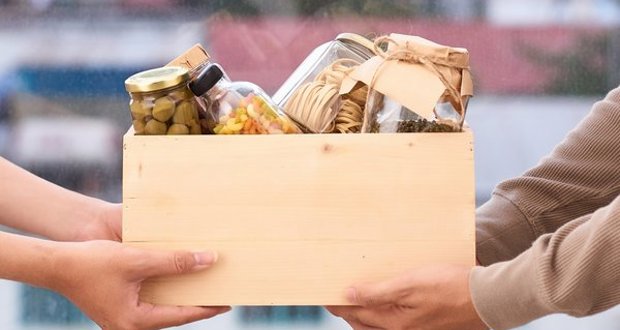10 July 2020

Coronavirus disruption is causing gluts and waste across the food chain
Zero Waste Scotland has launched an online matchmaking service aimed at rescuing food that would otherwise be wasted during this period of uncertainty, by connecting suppliers with surplus produce and organisations that will benefit from it.
With restaurants, cafes and other commercial food businesses worldwide still assessing how their businesses will operate as a result of coronavirus, disruption continues to be felt right across the supply chain as suppliers access to markets are likely to have changed for the produce they are growing and rearing. The service is intended as a help to manage previously unforeseen gluts, where no other solution is in place.
Preventing food waste is a key priority for Scotland thanks to the Scottish Government food waste target to reduce food waste by a third by 2025, and an essential step in the fight against climate change. The energy, resources, and associated carbon emissions that go into producing and processing food go to waste when food isn’t eaten. On top of that, food waste emits potent greenhouse gas emissions if it ends up in landfill.
Iain Gulland, chief executive for Zero Waste Scotland, said:
“Preventing food waste at source should always be first priority. But where food surpluses can’t be avoided, redistribution is the next best option. Early on in lockdown, we identified problems where we could help by putting people in touch with each other in order to ensure gluts in the supply chain did not go to waste. That made us realise that there is a need for a coordinating role.
“Ensuring surpluses do not go to waste by redistribution has the benefit of providing quality food to those who can use it as well as protecting the environment. We’d encourage food suppliers with surplus to get involved.”
Organisations that will benefit from the resource sharing platform include community groups, emergency food providers and businesses. Redistributing quality food can help support communities.
Caroline de Rouffignac, Industry Development Officer at Scotland Food & Drink said:
“We welcome this match making service. It will be a useful tool for food and drink companies in the fight against food waste. Our sector is committed to reducing food waste and anything that helps connect those with surplus to those who can make good use of it will be very useful.”
Zero Waste Scotland is working with Food Standards Scotland to provide updated guidance on date labelling for food redistribution. The new UK-wide advice developed by the Waste and Resources Action Programme (WRAP), underlines the fact that food past its Best Before date remains safe, and perfectly good to eat for days, weeks, months or even years after the date – depending on the type of food and if it has been stored correctly.
The guidance aims to increase the amount of food made available by businesses for redistribution by ensuring that all food items, including any approaching or past the Best Before date, are considered for redistribution. For example, tinned food can safely be eaten three months after its best before. Best before is an indication of quality, whilst Use By dates are about food safety and should be adhered to.
Food Standards Scotland’s Senior Policy Advisor – Labelling and Standards, Stephen Hendry, said:
“Food Standards Scotland welcomes Zero Waste Scotland’s promotion of the WRAP food redistribution labelling guidance, which helps businesses decide which foods may be suitable for redistribution, and covers best labelling and storing practice for this surplus food.
“Most of us know that food beyond its ‘best before’ date which has been stored correctly doesn’t automatically have to be thrown away. These food products will be safe for a period of time after the ‘best before’ date has passed so redistributing them helps in the effort to reduce food waste, which is particularly important at this time.”
Get further details on the food redistribution matchmaking service or to access support.